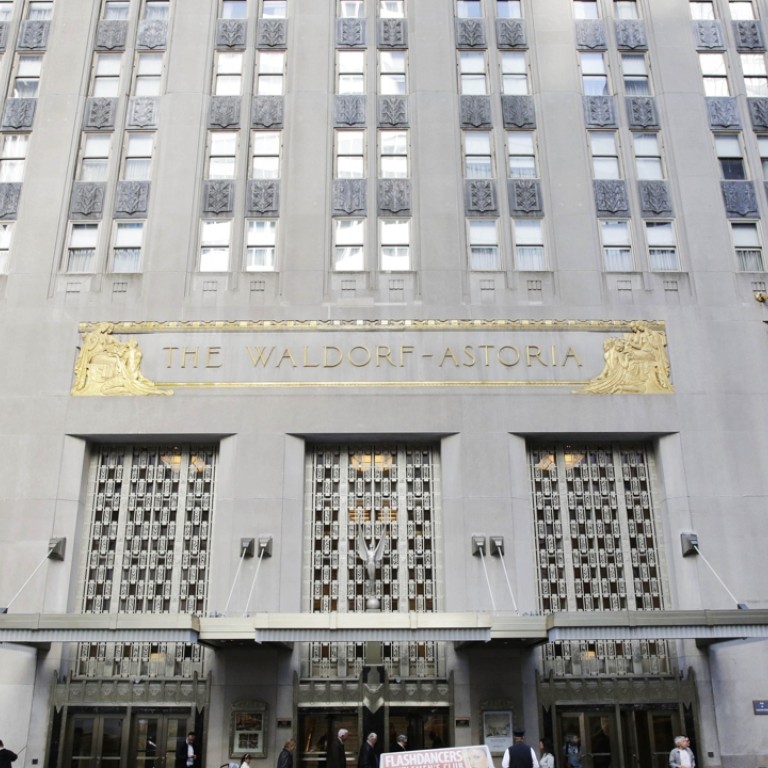
New | China’s Anbang extends US reach with US$1.6b purchase of Fidelity & Guaranty Life
Concerns are mounting the Beijing insurer maybe overreaching with series of global deals
Aggressive Chinese company Anbang Insurance Group may have overextended themselves, an investment analyst says, following its purchase of a United States insurance company - the latest in a series of deals.
Anbang announced on Tuesday it was buying US annuities and life insurance company Fidelity & Guaranty Life (FGL) for about US$1.6 billion.
Reorient Group managing director Brett McGonegal said while it was important for experienced Chinese players to be active in the global market, Anbang had to be careful of moving too fast with its acquisitions.
“They just need to take a step back and look at what they’ve done,” he said. “I think they need to give the market some indications as to what their overall plan is.”
The news came as a new report by Moody’s Investors Services, released on Tuesday, said mergers and acquisitions in the insurance industry had reached its highest level in years, reaching over US$200 billion as of September.
Anbang said it would pay US$26.80 per share to buy all the outstanding shares of New York listed FGL, a 28.9 per cent premium over the company’s closing price on April 6 of US$20.79, when the negotiations began for the purchase.
FGL’s stock was down 1.6 per cent on Monday to close at US$25.79.
“Aquisition of FGL – a company with a positive operational track record, skilled management team and employee base, and strong long-term business potential – is consistent with Anbang’s investment strategy, which is focused on globalisation,” Anbang said in a statement.
McGonegal said while their purchase of Fidelity & Guaranty Life was inside their core competency, Anbang could experience problems with its other purchases in South Korea and the United States.
“They’ve been on kind of a spending spree, buying hotels and stuff like that... I think they’re going to really need to perform at a high level to make all these acquisitions work properly,” he said.
Still, McGonegal said for the very few Chinese companies who had high-levels of proven experience in overseas mergers and acquisitions, it could be a good way of distinguishing themselves.
“The guys who can do it should be very active because they set themselves apart from their competitors who don’t have that experience,” he said.
Director of Insurance School at the Beijing Central University of Economy and Finance Hao Yansu said purchases of this kind were becoming common for large Chinese insurance companies.
”[They] have accumulated adequate capital and overseas acquisitions are out of the need to allocate that capital. It is a logical thing to do,” he said.
“The Anbang deal cannot be viewed separately from the other deals that Chinese insurers have struck in recent years, such as Fosun’s buyout of BHF Kleinwort Benson Group SA in Belgium for US$548 million.”
Credit Suisse research analyst Arjan van Veen said companies in other Asian countries had also been buying up US life insurance companies in the past few years.
Japan’s Dai-ichi Life agreed to buy US company Protective Life in June 2014 for US$5.7 billion while Tokio Marine Holdings bought HCC Insurance Holdings for US$7.5 billion in June 2015.
Founded in 2004, Beijing-based Anbang has expanded aggressively overseas and acquired the iconic Waldorf Astoria hotel in New York for US$1.95 billion last year.
Its largest stakeholders include state-owned SAIC Motor Corp and Sinopec Group. Chen Xiaolu, the son of one of the Communist Party’s founding generals, serves as an advisor to Anbang.
FGL ranked sixth in market share of the fixed annuity market in the US in 2014.


